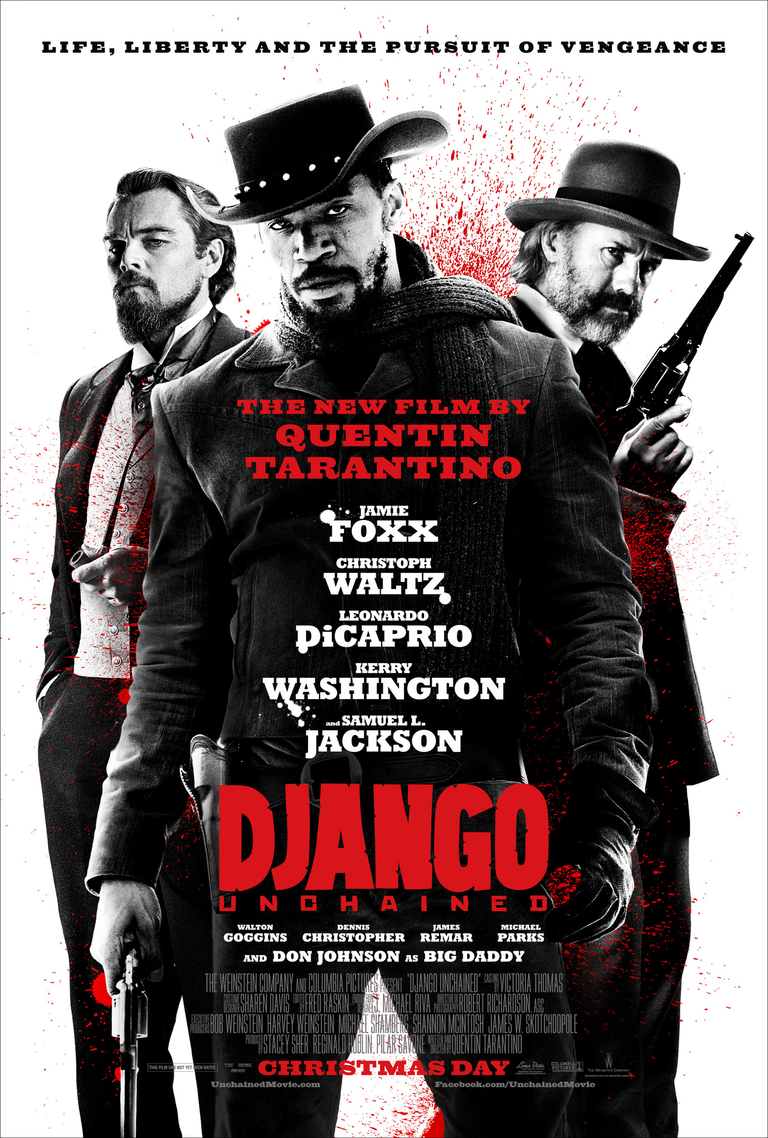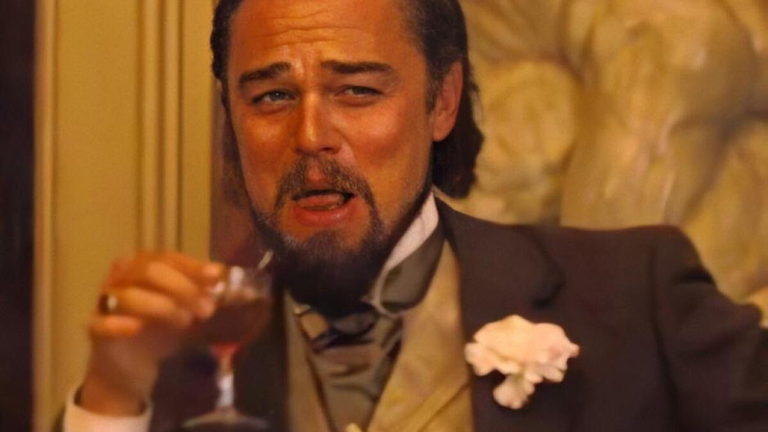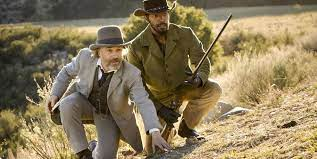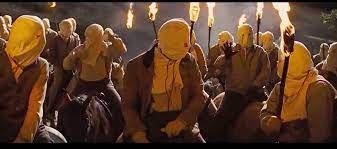Movie review: Django Unchained (2012) by Quentin Tarantino

Technnical data:
Director: Quentin Tarantino
Producers: Stacey Sher, Reginald Hudlin, Pilar Savone
Screenplay: Quentin Tarantino
Main actors: Jamie Foxx, Christoph Waltz, Leonardo DiCaprio, Samuel L. Jackson
Summary (from Rotten Tomatoes): Two years before the Civil War, Django (Jamie Foxx), a slave, finds himself accompanying an unorthodox German bounty hunter named Dr. King Schultz (Christoph Waltz) on a mission to capture the ruthless Brittle brothers. Schultz frees Django and together they hunt down the South's most wanted criminals. Their travels take them to the infamous plantation of the shady Calvin Candie (Leonardo DiCaprio), where Django's long-lost wife (Kerry Washington) is still a slave.
Review:
WARNING: The following review contains spoilers.
Let's start with one of the things that surprised me the most about this film: that it managed to revolutionise westerns decades after they went out of fashion, mainly because of the inclusion of a black protagonist who recovers his freedom, as this had rarely (if ever) been seen before, and also because the theme of revenge is against many of the white people who dedicate themselves to slavery. From the beginning we can see Tarantinio's trademark, for things ranging from extreme violence and various doses of black humour, so you can tell that this film is more along the lines of the spaghetti western than the American western; in fact, for me this is the most violent film and with more deaths of the director only behind Kill Bill Vol. 1.
Although the violence is quite strong, it doesn't come close to matching all the racism in the film, just the fact that the word "nigga" is said over a hundred times. It is also very interesting to see how Stephen (Samuel L. Jackson), who is a black-skinned character, has become totally racist, to the point of almost hating black people. Even Leonardo DiCaprio, during the filming of the dinner scene, had to stop for a moment because the comments made by his character were so racist and so strong that he had to stop the scene because they shocked him emotionally (Fun fact, DiCaprio during this scene hits the table and accidentally broke a small glass with his palm and started to bleed, but he still stayed in the role. Tarantino was so impressed with this scene that he left it as it was in the final cut).

But undoubtedly, one of the most heartbreaking moments of the film is when Broomhilda von Shaft (Kerry Washington), Django's wife, is pulled naked and abused from a well, showing how crude the society of that time was. It is for these details that the film, which, despite seeming racist, is actually a sample of the historical context of the United States at the time, and how the country is not the paradise that many think it is.
Also noteworthy is the setting, which gives the impression of being in the south of the country more than a hundred years ago, because of the desertic scenery, the plantations and even the clothing is carefully selected, such as the elegant costumes of the masters and the sloppy appearance of the slaves.

Worse, if there is one thing this film does not leave out, it is humor, contrasting with the drama with which all the racism is handled. Without a doubt the moment that made me laugh the most is when the members of the then still unnamed Ku Klux Klan plan an attack, but abandon it because they complain that the eyes of their masks are too badly placed.

Conclusion: Quentin Tarantino is one of my favorite directors, and this film brings out everything that makes him great, such as extreme violence, black humor and tributes to the cinema of yesteryear, all this coupled with a story full of strong references to racism and a tribute to western cinema both American and European, making it one of his masterpieces.
Score: 9,2/10
Translated with www.DeepL.com/Translator (free version)
